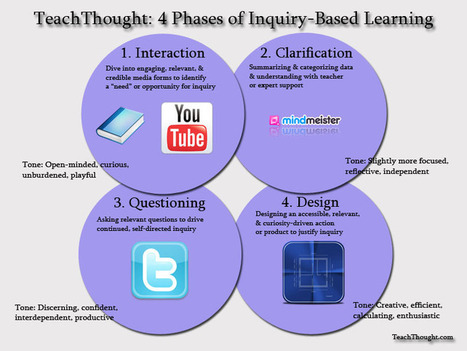"According to Indiana University Bloomington, Inquiry-based learning is an “instructional model that centers learning on a solving a particular problem or answering a central question. There are several different inquiry-based learning models, but most have several general elements in common..."
Research and publish the best content.
Get Started for FREE
Sign up with Facebook Sign up with X
I don't have a Facebook or a X account
Already have an account: Login
Tech tools that assist all students to be independent learners & teachers to become better teachers
Curated by
Beth Dichter
 Your new post is loading... Your new post is loading...
 Your new post is loading... Your new post is loading...
|
|












This indepth post explores inquiry-based learning. The four phases are:
1. Interaction - Big Idea: Dive into engaging, relevant, and credible media forms to identify a “need” or opportunity for inquiry
2. Clarification - Big Idea: Summarizing, paraphrasing, and categorizing learning with teacher or expert support
3. Questioning - Big Idea: Asking questions to drive continued, self-directed inquiry
4. Design - Big Idea: Designing an accessible, relevant, and curiosity-driven action or product to culminate and justify inquiry
Each of the four phases also includes information on tones, student indicators, teacher indicators, appropriate questions and apps.
There are also 4 questions for student-based reflection and ten adjustments you may make as a teacher to adjust to teaching inquiry-based learning.
There are many forms of teaching that incorporate inquiry-based learning including project-based learning, blended learning, and challenge-based learning. You may find your students more engaged in the learning process if you include some components of inquiry-based learning in your classroom.